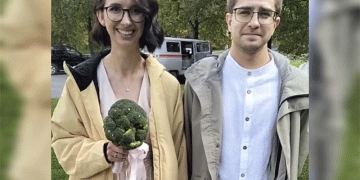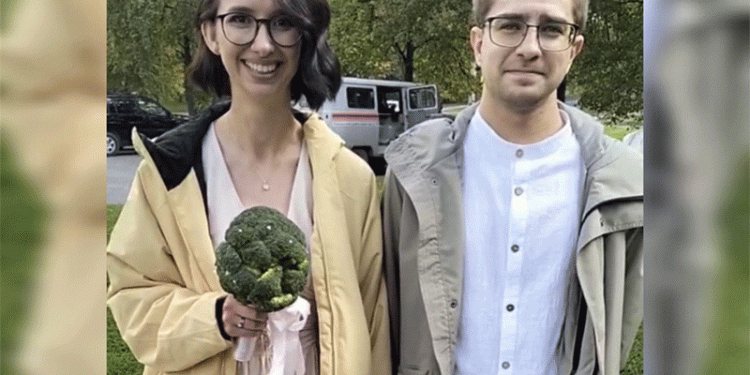In a striking image from Novosibirsk, a bride chose to forgo the traditional floral bouquet, instead carrying a elegantly decorated stalk of broccoli. While the couple from Akademgorodok clarified the idea was not new and found online, its public visibility sparks a fascinating conversation about the evolving perception of agricultural produce. This move beyond purely nutritional value into the realms of aesthetics and symbolism offers a unique case study for the agricultural sector.
The couple’s reasoning was multifaceted. They were drawn to the vegetable’s “laconic and interesting” appearance and its “deep, natural green” color. This highlights a consumer appreciation for the intrinsic beauty and structural form of fresh produce, qualities often celebrated by chefs and food stylists but rarely leveraged in mainstream marketing. Furthermore, their broader wedding choices—linen attire and a deliberate avoidance of large, wasteful celebrations—align with a growing global movement towards sustainability. While not their primary goal, the broccoli bouquet became an unintentional but powerful symbol of this “eco-conscious” ethos.
This trend dovetails with broader market data. The global market for sustainable products continues to expand, with consumers increasingly valuing authenticity and environmental responsibility. A broccoli bouquet, which is compostable and edible, presents a zero-waste alternative to cut flowers, which often have a significant carbon footprint due to refrigeration and long-distance transport from global greenhouses. A 2023 report on sustainable weddings indicated a rising preference for locally-sourced, reusable, or edible decorations, a niche that high-quality produce can directly fill.
For farmers and the agricultural industry, this represents a potential new branding and value-added opportunity. It encourages a mindset where vegetables are not just commodities but also sources of natural beauty, sustainability symbols, and components of a lifestyle choice. Imagine “bouquet-grade” broccoli or specially bred ornamental kale and cabbages marketed directly to florists and eco-conscious consumers.
The Novosibirsk broccoli bouquet is more than a quirky social media moment; it is a cultural indicator. It signals a public readiness to embrace agricultural products in new, symbolic roles that emphasize sustainability, natural beauty, and minimalist elegance. For the agricultural community, this underscores the potential to innovate beyond the food aisle. By understanding and engaging with these shifting consumer values, producers can explore novel marketing angles, develop specialty product lines for non-culinary uses, and strengthen the connection between consumers and the authentic, sustainable nature of their harvest.































